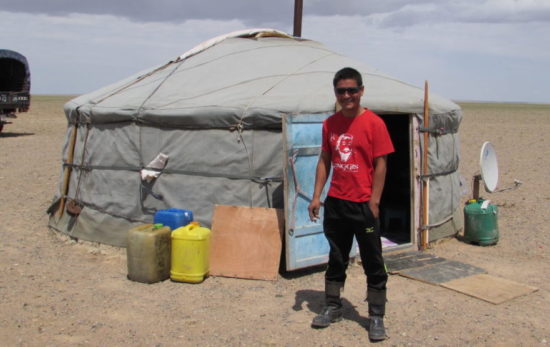Mongolian Herders Secure Historic Agreement with Oyu Tolgoi Mine, Government to Protect Herds, Health and Livelihoods

Accompanied by Oyu Tolgoi Watch and Accountability Counsel, herders in the South Gobi used the IFC’s complaint office to negotiate agreement.
Khanbogd Soum, Mongolia – A community of traditional nomadic herders has reached a historic set of agreements with Oyu Tolgoi LLC (OT), a Rio Tinto copper and gold mine, and the local government to resolve complaints the herders had related to the mine’s impact on the community and its herds. While these agreements do not resolve all negative impacts of the mine, the commitments, which include strategies to improve water access, to mitigate fractured pasturelands, and to support and diversify the economic activities of the community, represent a significant step forward for the herders. The agreement was negotiated with the help of the Office of the Compliance Advisor/ Ombudsman (CAO) at the International Finance Corporation (IFC), which is an investor in Oyu Tolgoi.
The agreements are the culmination of a dialogue process among the mining company, the herders, and the local government that lasted more than four years. The dialogue resulted in the creation of a Tripartite Council, which has a formal charter agreed to by all parties and which will continue to serve as a forum to resolve disputes between the herders and the mine during the 40+ year expected life of the mine.
>> Read the Agreements
“These agreements represent a huge amount of hard work and progress in our four years of negotiations,” said Battsengel Lkhamdoorov, a member of the Elected Herder Team that negotiated with Oyu Tolgoi and the local government. “We will continue to be vigilant and make sure what has been agreed to is actually accomplished, but today we feel that our complaints about the negative impact of this mine on local herders are starting to be addressed in a serious way.”
“This case provides an example of the way in which a dispute resolution process can help parties build trust and learn to work together, enabling them to come to an agreement about issues that seemed intractable at the beginning of the process,” said Caitlin Daniel, Global Communities attorney and lead Accountability Counsel attorney accompanying the herders.
As part of Accountability Counsel’s support, Daniel spent last winter in Mongolia in order to provide intensive support to herders to hold consultations with the larger herder community, and to help them craft arguments and develop a sound strategy for the final push to reach agreement.
“These agreements are an important milestone, but much work still lies ahead,” she said. “They include dozens of individual commitments by the mining company and local government that must be fulfilled for the agreements to be meaningful to the herders.”
“The mine will continue to have impacts on water availability and pastureland,” said Sukhgerel Dugersuren, Executive Director of OT Watch, a Mongolian NGO that supports the herders. “The harms must be mitigated and the development benefits should be extended to the herders so they can continue their traditional way of life into the future. OT will need to prioritize this work and make sure its efforts are not contingent upon the company’s ability to spare funding for compensation for past damages.”
For more information on our work in Mongolia, visit our case page.
To speak with Caitlin Daniel about the historic nature of these agreements, please contact Meredith MacKenzie at Meredith@accountabilitycounsel.org or (202) 412 4270.
###
Accountability Counsel amplifies the voices of communities around the world to protect their human rights and environment. As advocates for people harmed by internationally financed projects, we employ community driven and policy level strategies to access justice.

